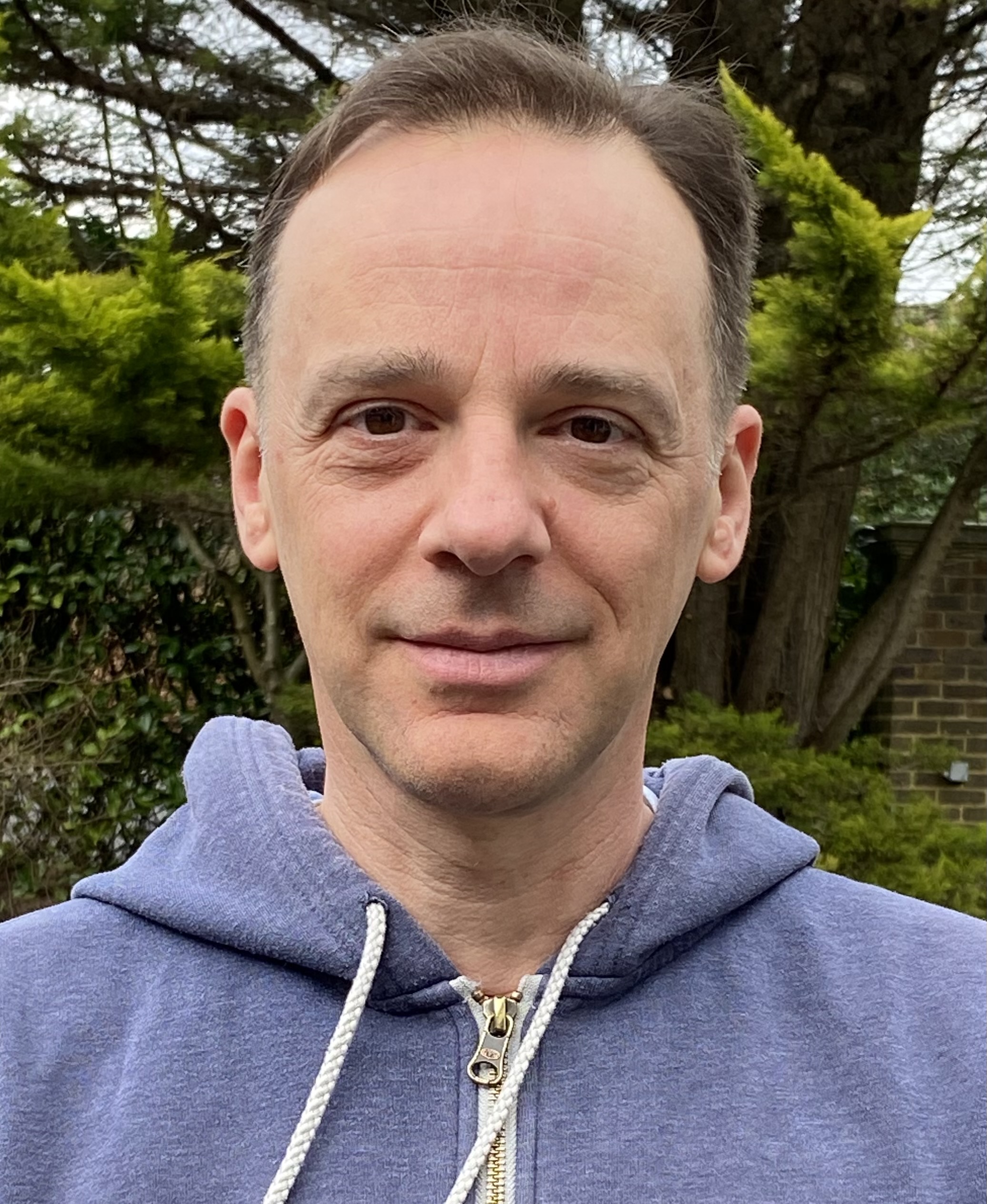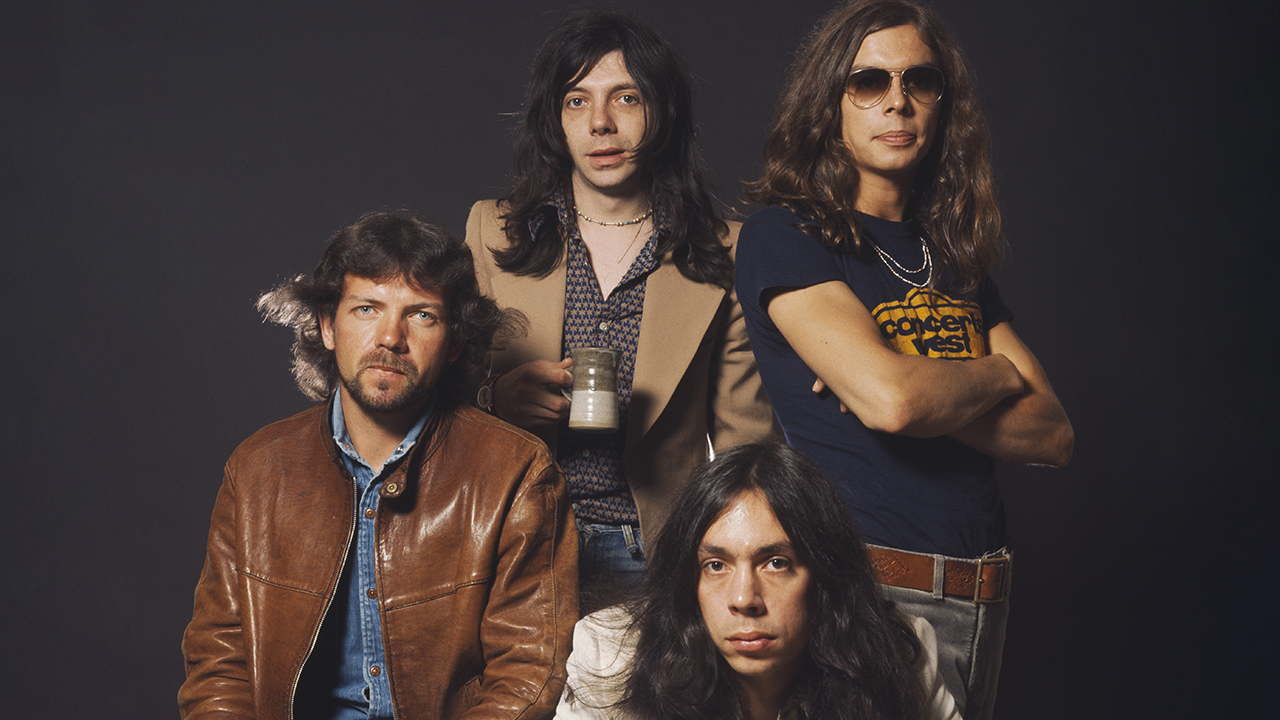“21st Century Schizoid Man – the first track on the first prog album – is a political protest song! Anyone who says prog and politics don’t belong together never realised what it was about”: The Tangent’s Andy Tillison on why prog should challenge you
Self-confessed “raving leftie anarchist” gave the subtitle “A protest, a reflection, a couple of regrets and a rant” to The Tangent’s 10th album for good reason

When The Tangent released 10th album Proxy in 2018, it was subtitled “A protest, a reflection, a couple of regrets and a rant” for good reason. That year band leader Andy Tillison told Prog about the genesis of the project, and speculated on whether it marked the end of a low period in his creative career.
Keyboardist Andy Tillison has never ploughed a mainstream prog furrow. Since his band’s 2002 birth, The Tangent’s course has seldom run smooth. Last year they released The Slow Rust Of Forgotten Machinery, Tillison swiftly following that with his Kalman Filter collaboration Exo-Oceans with The Fierce & The Dead’s Matt Stevens.
With the release of new Tangent album Proxy, Tillison has become highly prolific again and appears to have well and truly recaptured his mojo. “It depends on whether people like Proxy or not,” Tillison says candidly. “The speed at which you turn something around isn’t indicative of quality. But I was enthused by how the last album turned out.”
Following the release of Slow Rust..., The Tangent and Jonas Reingold’s Karmakanic merged with a plan to hit the road as Tangekanic. But the tour was almost stillborn. Tangent saxophonist Theo Travis was unavailable, Karmakanic vocalist Göran Edman couldn’t attend rehearsals and Tangent keyboardist Marie-Eve de Gaultier pulled out on the tour’s eve. Having planned to split the keyboard parts between them, her withdrawal gave Tillison a massive logistical challenge.
“It was a nightmare as there was no time to get anyone else in,” he remembers. “Suddenly I had to play it all if we were going to sound remotely like the band we were purporting to be.” He briefly considered cancelling the tour. “Five minutes later we realised the implications. We’d travelled from all over and booked hotels, vans, crossings, flights and made visa applications. So we thought, ‘Hell’s bells, let’s just do it.’”
Victory was snatched from the jaws of defeat and the tour was salvaged, as documented on this year’s wryly titled live CD Hotel Cantaffordit. “I wasn’t happy with my own performance and thought the early gigs were pretty dreadful,” Tillison admits. “But the audience were still enjoying it, and by the time we got to Zoetermeer we were really cooking. Then at the Summer’s End festival we were at a peak and in America it got even better.”
With the band enjoying both playing and each other’s company, the seeds were sown for Proxy, which features all the musicians who toured as Tangekanic, plus Travis. “This last line-up of the band did a lot of laughing, talking about life, music and politics – it was a great way to see the world with some good friends. I thought how nice it would be if we made an album.”
Sign up below to get the latest from Prog, plus exclusive special offers, direct to your inbox!
So is The Tangent in its rudest health ever? “I don’t spend a lot of time listening to anything we’ve done before. Once I’ve finished an album I usually leave it,” Tillison answers. “I think some of our albums are great and some are crap and I wish I’d never made them. I never thought Not As Good As The Book was one of our finest moments musically – the book was good and the album title was right! But it’s some people’s favourite Tangent album.”
Tillison’s musical background is diverse. “I have always loved progressive rock but punk was tremendously exciting. I loved Blondie, Talking Heads, Television and Joy Division. Because I was 17 in 1977, I’m a peculiar generation. I was being called a boring old fart in 1977. I actually saw Yes and the Sex Pistols in the same year. Prog was the soundtrack of my schooldays, and the post-punk era became the soundtrack of my youth. If I’m asked to choose between the two, it’s a hard choice. Besides, any punk band worth its salt started to progress from day two.”
His current musical tastes remain wonderfully diverse, with his recent non-prog listening including 1990s techno and dance music, jazz fusion, German electronica, assorted pop music and disco funk in particular. “September by Earth, Wind & Fire has been played more in my house over the last 10 years than any other record. The missus and I like to dance to it!”
While traces of disco funk may be tricky to detect on Proxy, the album has some explicit techno passages, in particular on The Adulthood Lie. “One of the defining parts of progressive rock was the exploration of the synthesiser,” Tillison explains. “At the same time, our sisters and brothers in soul and disco were also using synthesisers, albeit for different things.”
Tillison remains interested in synthesisers well beyond the progressive sphere and namechecks The KLF, The Orb, The Future Sound Of London, DJ Sammy and Skrillex. “Skrillex is probably one of the most important synthesiser players in the world at the moment, doing things with the synthesiser that make you go, ‘Wow!’”
That said, he’s also mindful of the need to play to the prog gallery with The Tangent’s new album, citing its title track as “the most retro song on the record. It’s got a lot of early-70s Canterbury references. I like to advance our music, but I didn’t want to make the whole album techno. People who buy our records are into prog rock so I wanted to give them something they like and then present them with something else and see what they think.”
Tillison relishes challenging his audience. “My enjoyment of progressive rock in the past was never the result of people giving me something easy,” he reasons. “The landmarks in my enjoyment of music have always been things that were hard, where you thought, ‘What the fuck is this?!’ when you first heard it. You have to give them time – which is the biggest problem of living in 2018.”
Warming to the theme of living in 2018, Tillison’s forthright views extend well beyond music. On the subject of the UK’s forthcoming exit from the European Union, he’s a strident Remainer. “Brexit is terrible. It’s the wrong decision. Referenda aren’t a good idea – we pay people to make decisions and we used to have a system where we would find people who we believed were capable of running life for us. But I will approach whatever future is coming our way with as much optimism as I can.”
On The Slow Rust..., Tillison protested against Brexit on A Few Steps Down The Wrong Road. “The protest song has almost become a laughable cliché, but how many Brexit songs were there? But far from getting an argument going, it was largely ignored,” he sighs.
Tillison understands that some listeners may not want any politics in their music but he defends his right to include them. “The carefree life we have lived in a peaceful Europe since the 40s is too good to not spare a song on. So we did a song about that and a lot of people said politics doesn’t belong in prog.”
To counter the point, Tillison references King Crimson: “‘Innocents raped with napalm fire, 21st century schizoid man’: the very first prog album, ground zero, the first track is a political protest song! Anyone who tells me that prog and politics don’t belong together has either missed the beginning of prog or never realised what it was about.”
On Proxy he celebrates the wonderful sight of the sky in the morning on sublime instrumental The Melting Andalusian Skies, albeit inspired by having travelled through France and Spain without having his passport inspected since Dover. However, referring to himself as a “raving leftie anarchist,” Tillison doesn’t give any major institution an easy ride. “I’m no fan of the European Union, or the General Synod, the Vatican, the White House or Whitehall,” he reveals. “I’m not a great fan of authority!”
In his youth he was a fan of anarchist bands Chumbawamba, Crass and Discharge. “They were big influences on how I live. The EU is not something I would have gone to war to protect, but the attack was really about so many wanting ‘our country to be just for us.’ I don’t see it that way – we’ve benefitted culturally for centuries from immigration. And prog rock has always been about bringing together different musical styles and cultures from all over the world.”
Approaching his seventh decade, retirement isn’t on Tillison’s agenda. “I can’t give up because I like doing this too much. Every year since 1977 I have made prog rock music. But because I was never part of the mainstream explosion of prog rock, it’s been a struggle.”
However, he’s entirely comfortable with his situation. “I’m not trying to become famous. In the late 1970s and early 1980s I thought I’d have a career as a rock star. But since the 1990s that’s not been in my head. I’ve lived a life without much money,” he laughs, “but I seem to have enjoyed my life a lot more than many people with a great deal of money!”
Nick Shilton has written extensively for Prog since its launch in 2009 and prior to that freelanced for various music magazines including Classic Rock. Since 2019 he has also run Kingmaker Publishing, which to date has published two acclaimed biographies of Genesis as well as Marillion keyboardist Mark Kelly’s autobiography, and Kingmaker Management (looking after the careers of various bands including Big Big Train). Nick started his career as a finance lawyer in London and Paris before founding a leading international recruitment business and has previously also run a record label.

